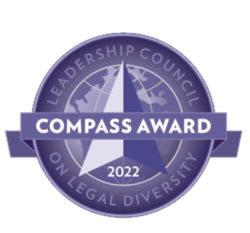IN THE NOW
REAL ESTATE EDITION

IN THIS ISSUE:
• You’ve Been Served, Move Quickly Or You May Lose (A Gentle Reminder)
• Manifestly Unjust”” FLA 4th DCA Rejects Application of Collateral Estoppel
• Lender Alert: Identifying Post-Judgment Interest in Foreclosure Judgments
• FDCPA Update: Third-Party Standing
• The Doctrine Of Merger And Post-Judgment Assignments Of Instruments
• Applicability of the Probate Act to Mortgage Foreclosures in Illinois
• Updated Laws for Serving FL Corporations Should Assist Lenders in Foreclosure Actions
SUMMER EDITION 2023
WELCOME EDITOR’S LETTER

 Jason M. Vanslette Editor, and Business Unit Leader/Partner
Jason M. Vanslette Editor, and Business Unit Leader/Partner

Don’t wait to buy real estate, buy real estate and wait .
–T. Harv Eker
The residential real estate landscape continues to remain the same for almost a year as market inventory remains low, prices remain high and equity continues to be in substantial supply with a large majority of homeowners. As interest rates also continue to rise, there is little motivation to sell or buy, causing very few new loan originations, refinances and/or HELOCs comparative to the last few years. Homeowners are simply “waiting” to see what happens with interest rates, inventory and affordability.
Additionally, because of the increase in property values and substantial equity ratios homeowners currently enjoy, very few foreclosures cases are going to auction as most are paid off or sold prior to going to sale. Despite an increase in foreclosure starts (particularly in Florida and Illinois), distressed properties or REO properties are not actually hitting the market, thus adding to the overall residential supply issues. Perhaps other factors might shift these patterns in the near future (like unemployment, inflation, etc.), but investors will have to continue to “wait and see”.
“ “
YOU’VE BEEN SERVED, MOVE QUICKLY OR YOU MAY LOSE (A GENTLE REMINDER) . . . . . . . . . . . . . . . . . . . . . . . . . . . . . . . . . . . . . . . . . . . . 4-6 MANIFESTLY UNJUST” FLA 4TH DCA REJECTS APPLICATION OF COLLATERAL ESTOPPEL . . . . . . . . . . . . . . . . . . . . . . . . . . . . . . . . . . . . . . . . . . 6-7 LENDER ALERT: IDENTIFYING POST-JUDGMENT INTEREST IN FORECLOSURE JUDGMENTS . . . . . . . . . . . . . . . . . . . . . . . . . . . . . . . . . . . . . . . 7-8 FDCPA UPDATE: THIRD-PARTY STANDING . . . . . . . . . . . . . . . . . . . . . . . . . . 8-9 THE DOCTRINE OF MERGER AND POST-JUDGMENT ASSIGNMENTS OF INSTRUMENTS . . . . . . . . . . . . . . . . . . . . . . . . . . . . . . . . . . . . . . . . . . . . . . . 9-11 APPLICABILITY OF THE PROBATE ACT TO MORTGAGE FORECLOSURES IN ILLINOIS . . . . . . . . . . . . . . . . . . . . . . . . . . . . . . . . . . . . . . . . . . . . . . . . . . . . 11- 12 UPDATED LAWS FOR SERVING FL CORPORATIONS SHOULD ASSIST LENDERS IN FORECLOSURE ACTIONS . . . . . . . . . . . . . . . . . . . . . . . . . . . . 12-13 CONTRIBUTORS . . . . . . . . . . . . . . . . . . . . . . . . . . . . . . . . . . . . . . . . 14-18 NEW INDIANA LOCATION . . . . . . . . . . . . . . . . . . . . . . . . . . . . . . . . . . . . 19 AWARDS AND ACCOLADES . . . . . . . . . . . . . . . . . . . . . . . . . . . . . . . . 20-21 FIRM OVERVIEW . . . . . . . . . . . . . . . . . . . . . . . . . . . . . . . . . . . . . . . . 22-23 CONTENTS TABLE OF
You’ve Been Served, Move Quickly Or You May Lose (A Gentle Reminder)
Bequer v. National City Bank, 16 So.3d 1199 (Fla. 4th DCA 2010)
KK TAKEAWAY:
When a person or entity is sued, they are served with the summons and complaint. Upon being served, that person or entity must file a response to the complaint within 20 days or a default may be entered against them. If a default is entered against that person or entity, a motion to vacate may be filed, but if the Court finds that the party’s delay was not excusable, the default cannot be vacated.
By: Danielle Spradley, Attorney

It is not uncommon for banks, servicers and investors to get sued and included in lawsuits. Unfortunately, there are situations where upon being served, the right persons,

4 | IN THE NOW
or departments are not notified about the lawsuit. This can result is a judgment being entered and wiping out the existence of a lien. Therefore, the amount of time it takes to file the motion to vacate the default could be the difference between having the motion granted and denied.
BACKGROUND:
National City Bank was served with a thirdparty complaint on September 22, 2009. On November 19, 2009, a default was entered against the bank for their failure to file a response to the complaint. After the complaint was served, counsel for the Third Party Plaintiff continued to mail pleadings to National City Bank. On January 20, 2010, a Default Final Judgment was entered against National City Bank. On February 9, 2010, National City Bank filed a motion to vacate default and default final judgment. In support of the motion, National City Bank also submitted an affidavit which outlined their policies and procedures to ensure the timely response to lawsuit. In-house counsel for National City Bank attested that he found out about the lawsuit on February 3, 2010 and immediately retained counsel. The trial court granted the motion to vacate the default and default final judgment and the decision was appealed.
Pursuant to Florida Rules of Civil Procedure
1.540(b)(1), the Court may relieve a party from an order of default if they demonstrate (1) excusable neglect in failing to respond; (2) meritorious defenses; and (3) due diligence in seeking relief.
In this case, the Court only addressed the element of excusable neglect as the Court found that trial court erred in vacating the default, so that is what will be discussed here.
“Excusable neglect occurs “where inaction results from clerical or secretarial error, reasonable misunderstanding, a system gone awry or any other of the foibles to which human nature is heir.” Citing Elliott v. Aurora Loan, Servs., LLC, 31 So.3d 304, 306 (Fla. 4th DCA 2010). Here, the default was entered on November 19, 2009, and appellee did not file a motion to vacate until February 9, 2010. Appellee claims that it did not find out about the lawsuit until February 3, 2010; yet the record also includes substantial correspondence from appellants to appellee informing it of the default on November 20, 2009, December 15, 2009, and January 7, 2010.” Bequer v. National City Bank, 16 So.3d 1199, 1201 (Fla. 4th DCA 2010).
The appeals Court was also bothered by National City Bank’s failure to explain what happened to the correspondence advising of the default, as they insisted that when they learned about the lawsuit, outside counsel was immediately retained. The Court concluded that [w]hile appellee’s inaction to respond to the complaint alone might have constituted excusable neglect given the system appellees had in place, the failure to respond to the complaint, when coupled with the correspondence sent on three different occasions, constitutes gross negligence. Missing the complaint and the correspondence is not evidence of a “system gone awry” but rather a defective system altogether.” Id. at 1202.
| 5 IN THE NOW
While it may be difficult to determine how much time is reasonable to constitute excusable neglect, the Court in Fl Capital Investment 19, LLC v. South Florida Title Associates, LLC, 353 So.3d 657 (Fla. 4th DCA 2023) citing Elliott, 31 So.3d 304 at 308 stated that “due diligence must be established with evidence, which includes a sworn affidavit….It has been held that six-day, seven-day, and fifteen-day time lapses between discovery of a default and the filing of a motion to vacate default showed due diligence.”
It is imperative that proper procedures are followed when served with a lawsuit so that the legal department is notified and can retain counsel for proper representation. Otherwise, the consequence can be dire.
FLA 4th DCA Rejects Application of Collateral Estoppel

BACKGROUND:
The Fourth District Court of Appeals reversed a final judgment entered in favor of the mortgagors, holding the trial court wrongfully applied the Doctrine of Collateral Estoppel to enforce a judgment in a prior case finding that the lender lacked standing due to an “invalid” allonge. Relying on the “manifest injustice exception” to collateral estoppel, the Court reasoned that “[a]pplying collateral estoppel here and perpetuating the 2012 judgment’s erroneous conclusion would be manifestly unjust.”
In the case of Federal National Mortgage Association v. Trinidad, 358 So.3d 754 (Fla. 4th DCA 2023), Fannie Mae sought to foreclose a mortgage secured by a lost promissory note. In a previous case filed in 2012 to foreclose the same mortgage, a trial court entered judgment in favor of the mortgagors, holding that that Fannie Mae lacked standing to foreclose because the first allonge on the promissory note was “invalid” since the allonge pre-dated the note by five days. Fannie Mae did not appeal.
By: Bryan Jones, Attorney
KK TAKEAWAY:
Collateral estoppel cannot be invoked to enforce a judgment that is clearly erroneous.
In 2018, Fannie Mae filed a new mortgage foreclosure action, this time seeking to enforce a lost promissory note, as the promissory note was lost sometime after the conclusion of 2012 case. At trial in the 2018 action, Fannie Mae was able to set forth sufficient evidence to demonstrate its standing to enforce the promissory note and mortgage. However, to prove that it was the holder of the promissory note at the time the promissory note was lost, Fannie Mae necessarily relied on the allonge deemed “invalid” by the trial court in the 2012
6 | IN THE NOW
Manifestly Unjust””
case. In turn, the mortgagors argued that, under the Collateral Estoppel Doctrine, Fannie Mae could not rely on the allonge because it was previously adjudicated in the 2012 action that the allonge was invalid. The trial court agreed, and judgment was again entered in favor of the mortgagors.
On appeal, the Fourth District Court of Appeals reversed, holding that the trial court’s application of collateral estoppel was error. As the appellate court pointed out, it has already been established under Florida law that an allonge is not defective simply on the basis that the allonge pre-dates the note. See Bank of New York Mellon v. Florida Kalanit 770 LLC, 269 So.3d 571 (Fla. 4th DCA 2019). Therefore, the 2012 judgment was “clearly erroneous” and could not be enforced by collateral estoppel. The Court also found that the mortgagors failed to plead collateral estoppel as an affirmative defense, and it rejected the mortgagors’ argument that the defense was tried by consent. The case was remanded for the trial court “to grant the establishment of the lost note and for further proceedings on the mortgage foreclosure.”
Lender Alert: Identifying PostJudgment Interest in Foreclosure Judgments


In re 6200 NE 2nd Ave., LLC
648 B.R. 114 (Bankr. S.D. Fla. 2022)
By: Marc Marra, Partner
KK TAKEAWAY:
When foreclosure judgments, and the loan instruments underlying those judgments, did not specifically identify a post-judgment interest rate, the U.S. Bankruptcy Court for the Southern District of Florida ruled that 4.25% statutory foreclosure rate must be imposed; not the 25% default rate sought by mortgage servicer.
| 7 IN THE NOW
BACKGROUND:
Subsequent to the entry of two foreclosure judgments in state court in favor of a mortgage servicer, debtors’ filed for chapter 11 bankruptcy. Servicer filed two proofs of claim in the bankruptcy cases based upon their interest in the mortgage foreclosure judgments. Debtors objected to servicers’ proofs of claim and the 25% post-judgment interest rate sought therein.
The U.S. Bankruptcy Court for the Southern District of Florida sustained debtors’ objection to the proofs of claim and ruled that the state’s statutory judgment rate of 4.25% applied when, as here, the loan instruments and foreclosure judgments were silent as to a specific postjudgment interest rate.

In ruling, the bankruptcy court relied upon Whitehurst v. Camp, wherein the Florida Supreme Court held that “because a judgment is an obligation separate from the underlying contractual debt, to contractually set the rate of post-judgment interest the parties must expressly provide that the agreed interest rate also applies to any judgment or decree entered on the underlying debt.” Id., 699 So. 2d 679, 682 (Fla. 1997).
As the interest rate language in the judgments was ambiguous, the bankruptcy court interpreted the state court judgment awards of postjudgment interest “at the highest legal rate of interest” to mean “at the highest legal rate of interest applicable to judgments” as opposed to “the highest legal rate of interest applicable to loans.” In re 6200 NE 2nd Ave., LLC, 648 B.R. 114, 117 (Bankr. S.D. Fla. 2022).
FDCPA Update: Third-Party Standing
Magdy v. I.C. System, Inc. No. 21-3010 (8th Cir. 2022)
By: Jordan E. Shealy, Attorney
KK TAKEAWAY:
Under the Fair Debt Collection Practices Act, debt collectors are barred from contacting third parties regarding a consumer’s debt without the consumer’s consent. This statute was enacted for the protection of consumers. As a result, only the consumer can bring a lawsuit against a debt collector for this violation, no matter the injury a third-party may suffer from being contacted by the debt collector.
BACKGROUND:
In July of 2020, I.C. System, Inc. (ICS) sent a debt collection letter to Andrew Magdy as the attorney for an indebted consumer. As it turns out, Magdy was not the attorney for the consumer, and had never been the attorney for the consumer in any capacity. Magdy realized this after performing an extensive search into his files, using time he could have spent working on files for his actual clients. What’s more, the consumer never represented that Magdy was their attorney and never gave consent for a third-party to be contacted regarding the consumer’s debt. Debtor consent is a requirement under the Fair Debt Collection Practices Act (FDCPA) for a debt collector to
8 | IN THE NOW
contact third parties regarding the debt. Magdy sued ICS in the District Court asserting the company was in violation of the FDCPA and as a result he suffered an injury. The District Court held that, while ICS was in violation of the FDCPA, Magdy lacked standing to bring the lawsuit because he was not affiliated with the consumer in question.
After analyzing the statute’s text to determine the statute’s purpose, the District Court held that, because the statute emphasizes that no third-party may be contacted regarding the debt “without the consent of the consumer”, Magdy falls outside the scope of the class of persons the statute was designed to protect. When the case was brought to the Court of Appeals the court used the “Zone of Interest Test” to determine the scope of the statute’s protection. In analyzing the statute, the Court of Appeals indicated that the trigger for the statute’s protection is the act of the debt collector sending the communication to the third party. If the debt collector has consent from the consumer, the debt collector can send as many
communications regarding the consumer’s debt to third parties. The Court of Appeals affirmed, and Magdy was prevented from bringing a lawsuit against the debt collector because he was not affiliated with the consumer in question.

The Doctrine Of Merger And Post-Judgment Assignments Of Instruments

Ferry v. E-Z Cashing, LLC, 2023 WL 2776869, No. 2D22-1201, 48 Fla. L. Weekly D681 (Fla. 2d DCA 2023), reh’g denied (May 23, 2023).
By: Irina Danilyan, Partner
KK TAKEAWAY:
Under the doctrine of merger, where the promissory note and mortgage have been assigned after the final judgment of mortgage foreclosure, the assignee has no enforceable interest in the note and mortgage because any interest in those instruments had merged into the judgment. Assignment of the foreclosure judgment is an appropriate method to acquire an interest in the instruments. An assignment of leases and rents, however, does not merge into the foreclosure judgment, and assignee may collect the rents from the property until the foreclosure sale.
| 9 IN THE NOW
BACKGROUND:
In 2005, Ferry executed a Note and Mortgage to finance the purchase of a real property for commercial purposes, as well as a separate Assignment of Leases and Rents in favor of the same lender, who subsequently transferred its interest in all these instruments to Bayview Loan Servicing, LLC (“Bayview”). Following Ferry’s default on her payment obligations, Bayview filed a foreclosure action in 2007 and in 2010 obtained a final judgment of foreclosure. The judgment was silent as to assignment of leases and rents. As a result of Ferry’s filing for bankruptcy protection prior to the scheduled foreclosure sale, the case was stayed for nearly a decade.
In late 2019, Bayview assigned the Note, Mortgage and Assignment of Leases and Rents to E-Z Cashing, LLC (“E-Z Cashing”). After the lifting of the bankruptcy stay in 2020, E-Z Cashing filed a motion to substitute itself as the plaintiff in the foreclosure action predicated upon it being “the holder in due course” of the loan documents, and the trial court allowed substitution. Notably, while it would be a more appropriate route, E-Z Cashing did not acquire an interest in the judgment from the prior Plaintiff, Bayview. Despite Ferry’s vehement opposition based on the doctrine of merger, the same court granted E-Z Cashing’s motion to amend final judgment, motion to determine final judgment amount and reschedule foreclosure sale, and a motion for order assigning all leases and rents from the property. The appeal ensued.
Citing to an exhaustive list of Florida decisions for support, the Second District Court of Appeal (“DCA”) found that E-Z Cashing had no enforceable interest in the Note and Mortgage,

as any such interest merged into the 2010 foreclosure judgment, lost is identity and independent existence, and was extinguished. The amendment of the foreclosure judgment based on the post-judgment assignment of the note and mortgage was contrary to Florida law. The District Court held that the trial court erred in (1) finding that E-Z Cashing held a first priority mortgage lien against the real property and (2) amending the foreclosure judgment based upon the assignment of the extinguished loan documents.
With respect to E-Z Cashing’s ability to collect the rents from the property, however, the Second DCA held that the cause of action for enforcement of the assignment of leases and rents was not extinguished by the foreclosure judgment. Finding ample support in Florida decisional law, the District Court stated that the foreclosure of the mortgage and foreclosure of the assignment of leases and rents were separate and independent actions, where foreclosure of one neither prevented nor required foreclosure of the other. Consequently, the Assignment of Leases and Rents did not merge into the foreclosure judgment. The Second DCA affirmed the trial court’s order granting E-Z Cashing’s Motion for
10 | IN THE NOW
Assignment of Leases and Rents and held that E-Z Cashing, as Bayview’s assignee, possessed the right to leases and rents from April 2020 until the foreclosure sale and was able to collect the rents up until the foreclosure sale.
Applicability of the Probate Act to Mortgage Foreclosures in Illinois
items (1) and (2) of subsection (a) of Section 2-203, including a specific statement showing that a diligent inquiry as to the location of the individual defendant was made and reasonable efforts to make service have been unsuccessful. The court may order service to be made in any manner consistent with due process.
In recognition of social media and technology’s increased role in society, the Illinois Supreme Court recently amended Supreme Court Rule 102 to allow for service of summons via social media, text, and email. Ill. Sup. Ct. R. 102(f).
By: Travis P. Barry, Attorney

KK TAKEAWAY:
Plaintiffs may achieve service of process on evasive or otherwise hard to find defendants via social media, text, and email.
BACKGROUND:
735 ILCS 5/2-203.1 – Service by Special Order of Court – provides that if service is impractical with traditional efforts, a party may request permission from the court to serve by comparable method:
If service upon an individual defendant is impractical under items (1) and (2) of subsection (a) of Section 2-203, the plaintiff may move, without notice, that the court enter an order directing a comparable method of service. The motion shall be accompanied with an affidavit stating the nature and extent of the investigation made to determine the whereabouts of the defendant and the reasons why service is impractical under
A party seeking to serve under the new amended rule must first show that the party to be served “has access to and the ability to use the necessary technology to receive and read the summons and documents electronically.” If satisfied, the court may enter a special order allowing for service by electronic means; however, a court is not required to allow it.
In addition, whether by social media, email, or text, the party must attach copies of the summons and complaint to the message and clearly provide notice that the party is being sued. A copy of the summons and complaint must also be mailed to the last known address of the recipient.
After service has been effected, a return must be filed with details on how service was made, including a screenshot or screenprint of the transmission.
Notably, the methods listed in the amendment are not exhaustive, and the court may order a method not listed in the rule, so long as the manner is consistent with due process.
| 11 IN THE NOW
One thing worth noting prior to employing this tactic is that service pursuant to 735 ILCS 5/2203.1 is not considered “personal” or “individual” service for the purpose of obtaining deficiency judgments against borrowers and guarantors. A defaulted defendant served by this method will need to be pursued in a separate lawsuit in order to collect on any balance remaining after judicial sale.
In summary, a plaintiff may serve defendants via various electronic means of communication, specifically social media, email, and text, when traditional methods have failed by bringing a motion in court to request service by special order of court.
Updated Laws for Serving FL Corporations Should Assist Lenders in Foreclosure Actions
BACKGROUND:
The Florida legislature recently amended the laws which govern procedures and methods for service of process on corporate entities. While not a change that made the most noise when becoming effective, its impact on contested residential foreclosure actions is substantial and every attorney representing lenders in Florida needs to be aware of the changes.
The updated law, which became effective on January 2, 2023, simplifies and streamlines the manner of service of process on business entities.
Business entities – specifically Limited Liability Corporations (“LLCs”) – often challenge foreclosure actions after they become owners of properties in foreclosure from junior lien sales or other conveyances of the property before a foreclosure action’s Lis Pendens is filed.
Part of the LLC’s efforts to contest the case often involves avoiding service of process as their Registered Agents are sometimes hard to locate and serve.
By: Jason D. Silver, Attorney
KK TAKEAWAY:
New laws enacted in Florida help streamline service of process requirements and processes, especially when a corporate entity is avoiding being served.

Before the subject law was changed, LLCs would be able to avoid service of process to the point where the lender Plaintiff would be forced to amend their complaint to serve the Registered Agent of the LLC through the Florida Secretary of State.
Florida law traditionally provided for the alternative of substitute service of process on the Florida Secretary of State under F.S. §§48.061 and 48.081 if a party could not through reasonable diligence secure personal service of process on a business entity, if a foreign entity doing business in this state failed to have an
12 | IN THE NOW
active registered agent in this state, or if an individual concealed itself.
This procedure often caused months of delay and extensive fees and costs for the lender Plaintiff. This issue caught the attention of the Business Law Section of The Florida Bar when it was working to propose amendments to the Florida Business Corporations Act, F.S. §607. Other sections of the bar also eventually chimed in on the effort to streamline these issues.
As part of an effort to amend the Act, the Business Law Section studied and proposed legislative changes to the statutes regarding service of process and observed that a number of laws dealing with serving corporations conflicted each other, which caused confusion.

The Business Law Section came up with a direct approach with three layers, summarized as follows: 1) Service on the registered agent is preferred and should occur first; 2) Service on the entities’ representatives should be next; and 3) if the first two approaches fail, service on the secretary of state or alternative service including through electronic means could be obtained.
The legislature therefore updated subsection (1) of F.S. §48.161, to amend it to provide the ability to serve process on the secretary of state through electronic filing as well as personal service, or through certified mail or courier service.
Subsection (2) of the statute was then amended to, interestingly, allow notice to be sent by e-mail or other electronic means if those means have been used by the parties recently and regularly to communicate between or among themselves. In other words, the issue of technical gotcha tactics companies avoiding service has been mitigated.
Additionally, the amended subsection (2) eliminates any need for the complaint be amended to reflect those facts as long an appropriate affidavit of diligent search is filed.
An additional related statute, F.S. §48.102, allows a party to file a motion with the court after it has been unable through due diligence to secure personal service on a defendant that is a business entity through traditional means to allow service “in any other manner that the party seeking to effectuate service shows will be reasonably effective to give the entity on which service is sought to be effectuated actual notice of the suit,” including “electronically by e-mail or other technology.”
In other words, if counsel for the parties had been communicating, it is likely possible a party attempting service could file a motion to allow service of process through counsel.
These updated laws substantially change the process for serving a corporate entity, especially on which is avoiding service of process. Such should help lenders obtain jurisdiction over corporate parties so the foreclosure action can proceed more efficiently.
CONTRIBUTORS
Jason M. Vanslette Editor and Business Unit Leader/Partner
Email Jason M. Vanslette

Jason Vanslette is an “AV” rated Partner and Business Unit Leader focusing his practice on Mortgage Foreclosure Litigation and assisting banks and other financial service providers with regulatory, enforcement, transactional and litigation matters. Jason is rated AV Preeminent by Martindale-Hubbell, which indicates a demonstration of the highest professional and ethical standards and is the highest rating a lawyer can receive.
Jason began his legal career as an Assistant Public Defender for the Office of the Public Defender – 9th Judicial Circuit in Orlando, FL. During that time, he provided criminal defense representation to more than 200 clients
simultaneously and served as Lead Chair on more than 15 jury trials.
Prior to joining the firm, Jason worked as an Attorney for a firm in Fort Lauderdale, FL, where he provided legal representation to major financial institutions and mortgage servicers in various counties throughout the state, while focusing on non-jury trials and contested litigation.

Jason earned a Bachelor of Arts degree from Florida State University. He went on to earn a Juris Doctorate degree from Nova Southeastern University, Shepard Broad Law Center where he earned a spot on the Dean’s List for three consecutive years and received the Pro Bono Honors Award. While attending law school, he served as an executive board member for Law Student Advisor, Chief Executive and Host of WLAW Radio and member of the Nova Trial Association.

14 | IN THE NOW
MEET THE
Email Marc A. Marra
Marc Marra is a Partner at Kelley Kronenberg focusing on the Firm’s Real Estate Practice. With over ten years of experience, his practice focuses on assisting banks, lenders, mortgagees, and financial service providers with enforcing their rights in security instruments on real property. He protects, enforces, and litigates his clients’ rights in security instruments on real estate. He
also represents Condominium Associations and HOAs throughout South Florida as general counsel.
Marc is the founder of Heart Warriors, Inc., a non-profit corporation which supports children with Hypoplastic Left Heart Syndrome (HLHS) and other congenital heart diseases, and their families. This cause is very close to him as his daughter, Charlotte, has HLHS, and has undergone multiple major open-heart surgeries.
Marc prides himself on being available to his clients 24/7 and on his ability to assist with issues stemming from any dispute related to real estate – title, general real estate litigation, bankruptcy, sale, etc.
Email Bryan S. Jones


Bryan Jones is an Attorney at Kelley Kronenberg, where he handles matters related to mortgage foreclosure litigation and assists banks and other financial service providers with regulatory, enforcement, transactional, and litigation matters.

Before joining Kelley Kronenberg, Bryan gained extensive experience representing corporate and non-corporate clients in variety of litigation matters in state and federal court, including escalated mortgage foreclosure, commercial, timeshare, consumer, and employment litigation.
Bryan received his Bachelor of Science in Journalism from the University of Florida. He went on to earn his Juris Doctor degree from Florida International University College of Law, where he made Dean’s list, ranked in the top 20% of his class and received several book awards.

| 15 IN THE NOW
Marc A. Marra Partner
Bryan S. Jones Partner
Jason D. Silver Attorney
Email Jason D. Silver
Jason Silver is an Attorney at Kelley Kronenberg where he assists in handling matters related to Mortgage Foreclosure Litigation and assisting banks and other financial service providers with regulatory, enforcement, transactional and litigations.
Jason has close to a decade of experience in contested foreclosure litigation, guiding creditors from the beginning to completion of a court action.
Prior to joining the firm, Jason worked as an Associate Attorney at an AmLaw 200 firm focusing his practice in the areas of banking and consumer finance. He also practiced bankruptcy and general litigation as well as municipal and government law,

having presided as the Deputy Municipal Attorney for the Village of El Portal, Florida.
Jason received his Bachelor of Science in Public Relations with a minor in History from the University of Florida where he was elected to the Florida Blue Key Honor Society and awarded the Honorable Mention for the Outstanding Leadership and Service Award.
He then went on to earn his Juris Doctor degree from St. Thomas University School of Law. While in law school, Jason received a Book Award in Appellate Advocacy. Jason also worked as a legal intern for the Office of the City Attorney at the City of Miami in the Land Use, Zoning, and Quality of Life Division and interned for the Hon. Judge David Gersten (ret.) at the Third District Court of Appeal.
Jason is an avid runner and successfully completed the ING Miami Half Marathon and 13.1 races in 2011 and the Hollywood Beach Half Marathon in 2020.
Irina Danilyan Partner
Email Irina Danilyan
Irina Danilyan is an Attorney at Kelley Kronenberg where she assists in handling matters related to Real Estate Litigation.
Irina previously focused her practice on mortgage foreclosure litigation and assisting banks and other financial service providers with regulatory, enforcement, transactional and litigation matters. Irina has extensive experience handling contested



and uncontested foreclosure litigation. She handled pre-judgment and post-judgment foreclosure matters, including protection of creditors’ rights in condominium termination, probate, and criminal forfeiture matters.
Irina earned her Bachelor of Science degree in Management, cum laude, from Long Island University. She then went on to earn her Juris Doctor degree from Nova Southeastern University College of Law. During law school, Irina received a CALI Book Award in recognition of achieving the highest score in her Legal Research & Writing course and served as a Professor’s Research Assistant.
Irina is fluent in Russian.
16 | IN THE NOW MEET THE CONTRIBUTORS
Danielle M. Spradley Attorney
Email Danielle M. Spradley


and investor plaintiffs in foreclosure actions. For many years, Danielle handled Estate Planning matters and represented clients in complex probate litigation; and, she also represented major financial institutions and investors in debt collection actions. Prior to entering the private sector, Danielle spent two years working as an Assistant Public Defender.

Danielle Spradley is an attorney at Kelley Kronenberg, where she assists in handling matters related to Mortgage Foreclosure Litigation.
Before joining Kelley Kronenberg, Danielle spent more than fifteen years handling every aspect of criminal and civil litigation, amassing substantial trial and dispute resolution experience. Most recently, Danielle served as Managing Attorney overseeing the Litigation Department of a renowned national law firm where she not only provided supervision and guidance to the firm’s attorney’s and staff, but also represented clients in complex civil litigation matters, and as counsel for major financial institution
Danielle received her Bachelor of Arts from Florida State University where she demonstrated academic excellence, earning inclusion on the Atlantic Coast Conference Honor Roll. She also achieved athletic and extracurricular excellence as a member of FSU’s Varsity Track and Field Team, also serving as the team’s Student Ambassador. Danielle went on to obtain her Juris Doctor degree from University of Miami School of Law where she served as an Executive Board Member of the Entertainment and Sports Law Society. While in law school, Danielle began amassing experience through a Judicial Clerkship for the Honorable Norman C. Roettger, Jr.
Email Jordan E. Shealy
Jordan Shealy is an Attorney at Kelley Kronenberg, where she handles real estate and mortgage foreclosure litigation matters. She also assists banks and other financial service providers with regulatory, enforcement, transactional, and litigation matters.
Jordan earned her Bachelor of Arts degree from the University of Florida, where she majored in English. During her time at the University of Florida, Jordan was a member of the Pre-Legal Honors Society.
Jordan then went on to earn her Juris Doctor degree from Nova Southeastern University-Shepard Broad College of Law, where she was an associate Editor

for the ILSA Law Journal, as well as a member of the Moot Court Society. Jordan was the Vice President of her School’s Association of Business Law Students and the Transactional Law Practice Group President. She gained legal experience while earning her J.D. by attending the Trial Advocacy Summer Institute, being a pupil in Craig S. Barnard Inn of Court, and working as a Teaching Assistant to Adjunct Professor Gary Brown.
While in school, Jordan worked at Kelley Kronenberg as a Summer Associate and Law Clerk, where she worked directly with our construction department. Jordan gained experience by summarizing discovery reports, trial records, briefs, and other documents. She drafted deposition reports, pleadings, letters to insurance adjusters, and tender letters to carriers. She also served as a Judicial Intern to Judge Marcia Cooke for the United States District Court, Southern District of Florida.
| 17 IN THE NOW
Jordan E. Shealy Attorney
Email Travis P. Barry

Travis P. Barry is an Attorney at Kelley Kronenberg, where he handles matters related to real estate and mortgage foreclosure litigation. He also assists banks and other financial service providers with regulatory, enforcement, transactional, and litigation matters. Before joining Kelley Kronenberg, Travis worked at
a national law firm, where he represented lenders in real estate matters, including title actions and foreclosure litigation.

Travis received his Bachelor of Science degree from the University of Illinois Urbana-Champaign. He then went on to earn his Juris Doctor degree from DePaul University College of Law, where he was awarded the Benjamin Hooks Distinguished Public Service Award for completing over 200 hours of pro bono work. He was also a Dean’s Merit Scholarship recipient and served as a 1L Student Mentor.

MEET THE CONTRIBUTORS
Travis P. Barry Attorney

ACCOLADES AWARDS AND FIRM AWARDS







Kelley Kronenberg has been the recipient of numerous awards and honors both firm-wide and for a number of our practices, including individual accolades. Below is a select list of recognition and awards:











20 | IN THE NOW
2021 – 2023 Top Workplaces USA Energage 2020 – 2023 Top Workplaces Sun Sentinel 2022 Best Places To Work New Orleans CityBusiness 2019 – 2023 Best Law Firms U.S. News - Best Lawyers 2021 – 2022 Top Places To Work Ragan Communications 2019, 2021 – 2022 Women In Law Scorecard The National Law Journal 2017 – 2022 Biggest Law Firms in Florida Florida Trend 2016 – 2022 Largest Law Firms Tampa Bay Business Journal 2012 – 2022 NLJ 500 The National Law Journal 2020 – 2022 Business of the Year South Florida Business Journal 2011 – 2022 100 Largest Law Firms Daily Business Review 2017 – 2022 400 Largest Law Firms Law360 2016 – 2022 Largest Central Florida Law Firms Orlando Business Journal 2022 Best Midsize Law Firm To Work For Vault 2021 Diversity Team Award Profiles in Diversity Journal 2021 Diversity Scorecard The American Lawyer 2020 – 2022 Compass Award Leadership Council on Legal Diversity
REAL ESTATE ATTORNEY AWARDS
South Florida Business and Wealth: Real Estate Awards


Jason M. Vanslette
Martindale Hubbell AV Preeminent Rating
Jason M. Vanslette
Marc A. Marra
Florida Super Lawyers “Rising Stars”

Jason M. Vanslette, Marc A. Marra, Jason D. Silver
Broward County Bar Association, “Top 40 Under 40”, 2021

Marc A. Marra
Best Lawyers in America: Ones to Watch


Marc A. Marra
Jason D. Silver
South Florida Legal Guide “Top Lawyers”


Jason M. Vanslette
American Legal & Financial Network, JPEG Picture the Future Award


Fort Lauderdale Illustrated “Top Lawyer”

Jason M. Vanslette
Jason M. Vanslette Legal Elite “Up and Comer”
Marc A. Marra
| 21 IN THE NOW
A Firm Built on Relationships
KELLEY
KRONENBERG IS A MULTI-PRACTICE BUSINESS LAW FIRM.
with over the convenience of more than 400 15 200 Employees Attorneys Locations
Founded in 1980, the firm is one of the fastest-growing law firms in Florida and amongst the largest in the U.S. The firm serves all types and sizes of public and private companies, including small businesses and individuals nationwide.

| 23 IN THE NOW OFFICES OUR MIAMI NAPLES CHICAGO FORT LAUDERDALE TAMPA TALLAHASSEE NEW YORK NEW JERSEY ATLANTA NEW ORLEANS WEST PALM BEACH ORLANDO DAYTONA JACKSONVILLE 15 OFFICES JACKSONVILLE 10245 Centurion Parkway N, Suite 300 Jacksonville, FL 32256 Phone: (954) 370-9970 DAYTONA 128 Orange Avenue, Unit 306 Daytona Beach, FL 32114 Phone: (754) 888-5437 TALLAHASSEE 6267 Old Water Road, Suite 202 Tallahassee, FL 32312 Phone: (850) 577-1301 BY APPOINTMENT ONLY WEST PALM BEACH 1475 Centrepark Blvd., Suite 275 West Palm Beach, FL 33401 Phone: (561) 684-5956 FORT LAUDERDALE 10360 W. State Road 84 Fort Lauderdale, FL 33324 Phone: (954) 370-9970 MIAMI 1111 Brickell Avenue, Suite 1900 Miami, FL 33131 Phone: (305) 503-0850 NEW JERSEY 51 John F. Kennedy Parkway First Floor West Short Hills, NJ 07078 Phone: (908) 403-8174 CHICAGO 20 N. Clark Street, Suite 1150 Chicago, IL 60602 Phone: (312) 216-8828 NEW ORLEANS 400 Poydras Street, Suite 2400 New Orleans, Louisiana 70130 Phone: (732) 547-7907 NEW YORK CITY One Liberty Plaza 165 Broadway 23rd Floor, Suite 2374 New York, NY 10006 Phone: (800) 484-4381 ATLANTA 1100 Peachtree Street NE, Suite 200 Atlanta, GA 30309 Phone: (404) 990-4972 ORLANDO 20 North Orange Avenue, Suite 704 Orlando, FL 32801 Phone: (407) 648-9450 TAMPA 1511 North Westshore Blvd., Suite 400 Tampa, FL 33607 Phone: (813) 223-1697 NAPLES 1570 Shadowlawn Drive Naples, FL 34104 Phone: (239) 990-6490 INDIANA 5164 E. 81st Avenue, Suite 109 Merrillville, IN 46410 Phone: (219) 805-8065 INDIANA

WWW.KKLAW.COM | 800.484.4381 Fort Lauderdale | Miami | West Palm Beach | Orlando | Tampa | Naples | Tallahassee Jacksonville | Daytona | Chicago | New Orleans | New York City | New Jersey | Atlanta | Indiana



 Jason M. Vanslette Editor, and Business Unit Leader/Partner
Jason M. Vanslette Editor, and Business Unit Leader/Partner






















































